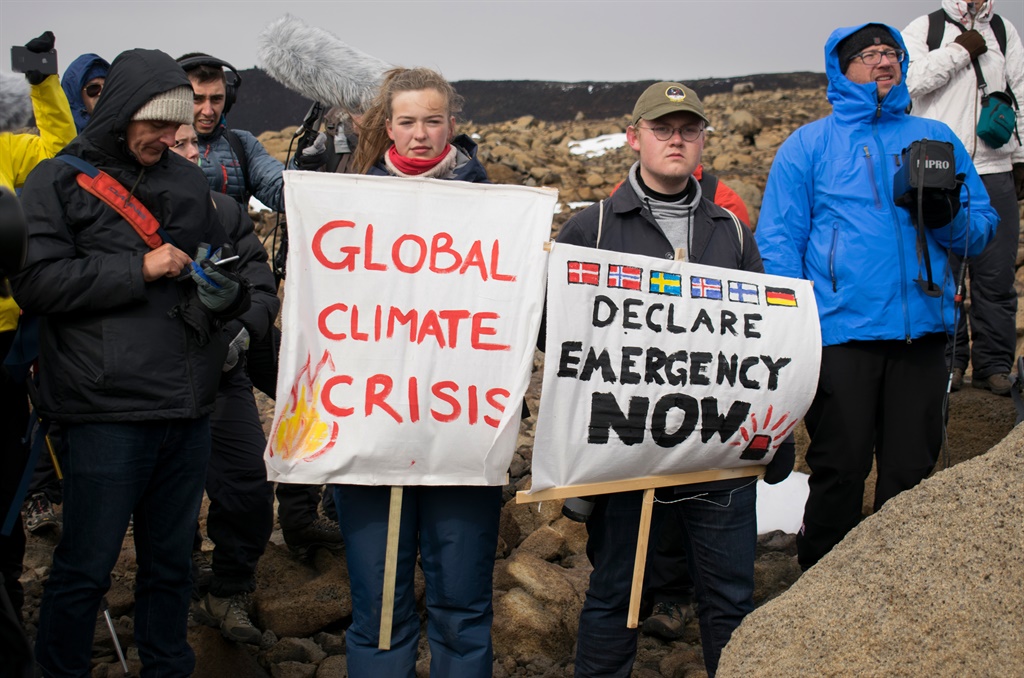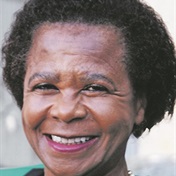
No job is too important to be created or sustained at the expense of the well being of our children and their future, writes Mamphela Ramphele.
There is no place to hide from the climate emergencies upon us. We have the responsibility as the people and citizens of Africa, to put pressure on our leaders to respond urgently and decisively to turn these crises into opportunities for greater shared prosperity.
Africa, the Mother Continent, is both the most vulnerable and has the greatest opportunities to respond to the climate emergencies upon us. Our population profile as the youngest in the world offers us the opportunity to innovate and to harness youthful energy to transform our socio-economic models. We have vast expanses of land including desert areas, to use for renewable energy programs and to plant millions of trees to absorb the noxious gases that are chocking us.
We need to demand that our leaders live up to the commitments they have made under the 2015 IPCC Paris Agreement to lead just transitions to more ecologically sound development approaches. Those commitments come with the negotiated $200bn per annum of development aid to fund just transition programs. Why are we not dipping into this treasure trove?
This last week alone we were confronted with the realities of the Greenpeace Report that Kriel in Mpumalanga, with its high concentration of coal-fired power stations, ranks as the second worst SO2 emission hotspot in the world. SO2 is a toxic pollutant that can result in lower respiratory infections, increased risk of stroke and increased risk of death from diabetes. SO2 emissions also contribute to the secondary formation of the dangerous pollutant called fine particulate matter (PM 2.5), which expert research shows is causally linked to several severe conditions, including lung cancer.
Globally, power plants and industries burning coal and oil are responsible for two-thirds of human generated sulfur dioxide (SO2) emission hotspots tracked by NASA satellites. Oil refineries and metals smelters are the other major sources worldwide. This ranking of global SO2 emission hotspots demonstrates the need for stronger emission standards for coal power plants and industry and a rapid transition away from fossil fuels. Yet we have Eskom and Sasol still daring to ask to be exempted from meeting standards they knew they had to meet more than a decade ago. How can we the people continue to allow this irresponsibility?
The biggest impediment to decisive effective climate emergency action and transformation of development approaches, especially in the energy, water and waste removal arena, is the lack of political will. The fear of loss of jobs seems to overwhelm our leaders who should know better than just transitions are not only possible but essential to securing our future as a human species.
The reality is that more sustainable jobs and a healthier environment can only be secured by taking bold steps to re-engineer us out of the current emergency situation on both the climate and job fronts. Re-imagining our cities, towns and rural settlements into ecologically sound habitats would unleash an amazing wave of positive energy, economic growth and healthier environment.
The District Model of Development announced by the Presidency last week offers a great opportunity to remodel our development approach into a more inclusive sustainable one. Building sustainability into each District would enhance positive development outcomes.
Let's look at Kriel. Ancient Africa used Mpumalanga as a breadbasket for SADC. The rich seams of coal left undisturbed for millennia made for fertile soil that produced endless rich harvests. What stops us from getting the mining industry, Eskom and Sasol working with government at the local, provincial and national levels to rehabilitate the land by closing the taps of pollution, planting millions of trees, and supporting locals to be productive in the agribusiness arena? Young unemployed people and many workers fearing retrenchment would benefit the most.
The Western Cape is another area under the spotlight since the drought two years ago. Gang violence is a symptom of sick, neglected communities where young people join gangs to gain a sense of belonging. Gangsterism has and will continue to defy the army response we threw at it.
Imagine if we had listened to the mothers who said: We do not need the army, we need social workers! Re-engineering the Cape Flats and all other townships designed by the apartheid system as dormitories are essential to restore the dignity of those communities and weave together support networks and rebuild trust.
Tree planting, food gardens and effective waste removal and strategic recycling could become key job creators and beautify the environment to restore the human dignity of residents. Schools in these communities need to be reclaimed as centres of community with blooming flower and vegetable gardens maintained by unemployed young people.
Why can’t the Eastern Cape be restored into another food basket it has the soil to be as well as ecotourism region? Xolobeni and other areas remain high potential areas for rural economic regeneration and preservation of the scenic sand dunes being circled by an Australian company that would not be allowed to mine titanium on the sand dunes of its own country. Why should we be allowing foreign companies to undermine our ecosystems in the name of jobs when more sustainable alternatives are staring us in the face?
We need to learn the lessons from the failure of our leaders to hold mining companies accountable for ecosystem protection. Take Kabwe in Zambia, where Human Rights Watch reports that lead exposure around a former lead and zinc mine is having disastrous effects on children’s health. Yet despite World Bank financial support, the government has yet to act decisively to clean up the environment and treat those affected, especially the children.
No job is too important to be created or sustained at the expense of the well being of our children and their future. Eskom's turnaround strategy must include weaning itself off the addiction to coal. The abundant sun, wind, biofuels need to be leveraged to make the rapid transition to a renewable energy future for our country. That future offers us another opportunity to move away from migrant labour that has destroyed African families across the country, and create sustainable jobs where people live. The District development model is just what the doctor ordered.
Our futures, and those of our children's children are too important for us to miss the current opportunity of turning our multiple crises into springboards for an ecologically sound and prosperous future.
- Mamphela Ramphele is co-founder of ReimagineSA.
Disclaimer: News24 encourages freedom of speech and the expression of diverse views. The views of columnists published on News24 are therefore their own and do not necessarily represent the views of News24.




 Publications
Publications
 Partners
Partners























